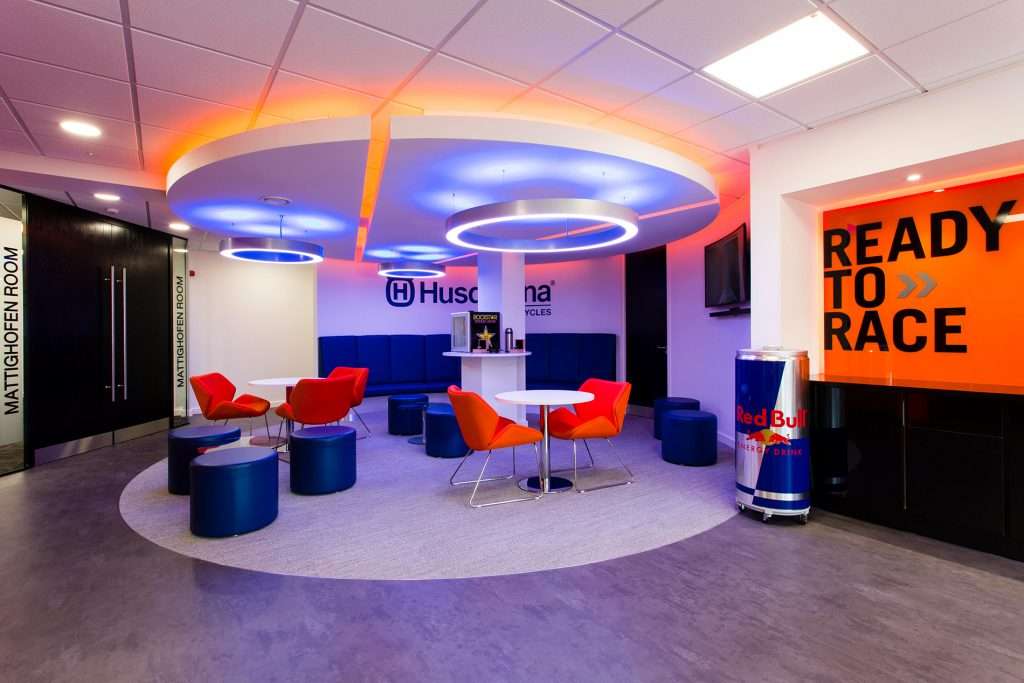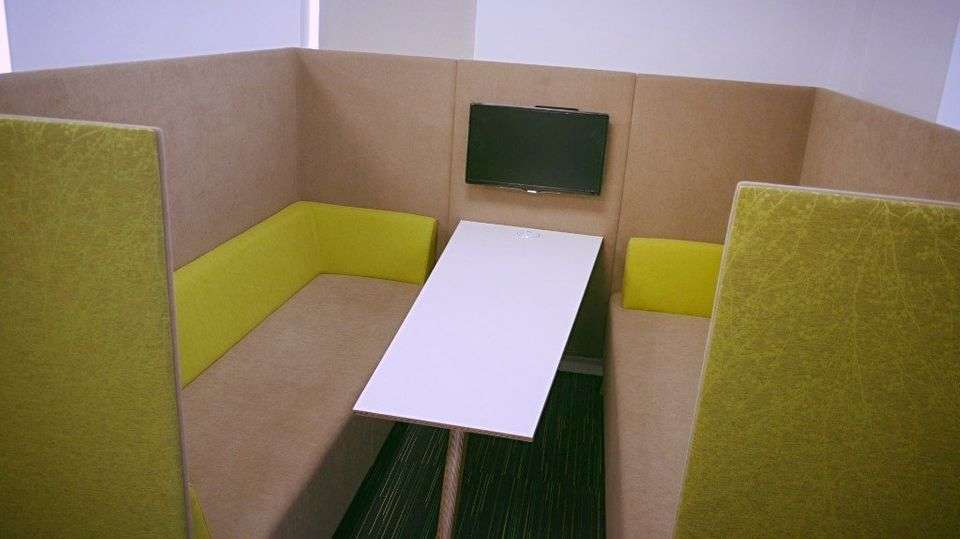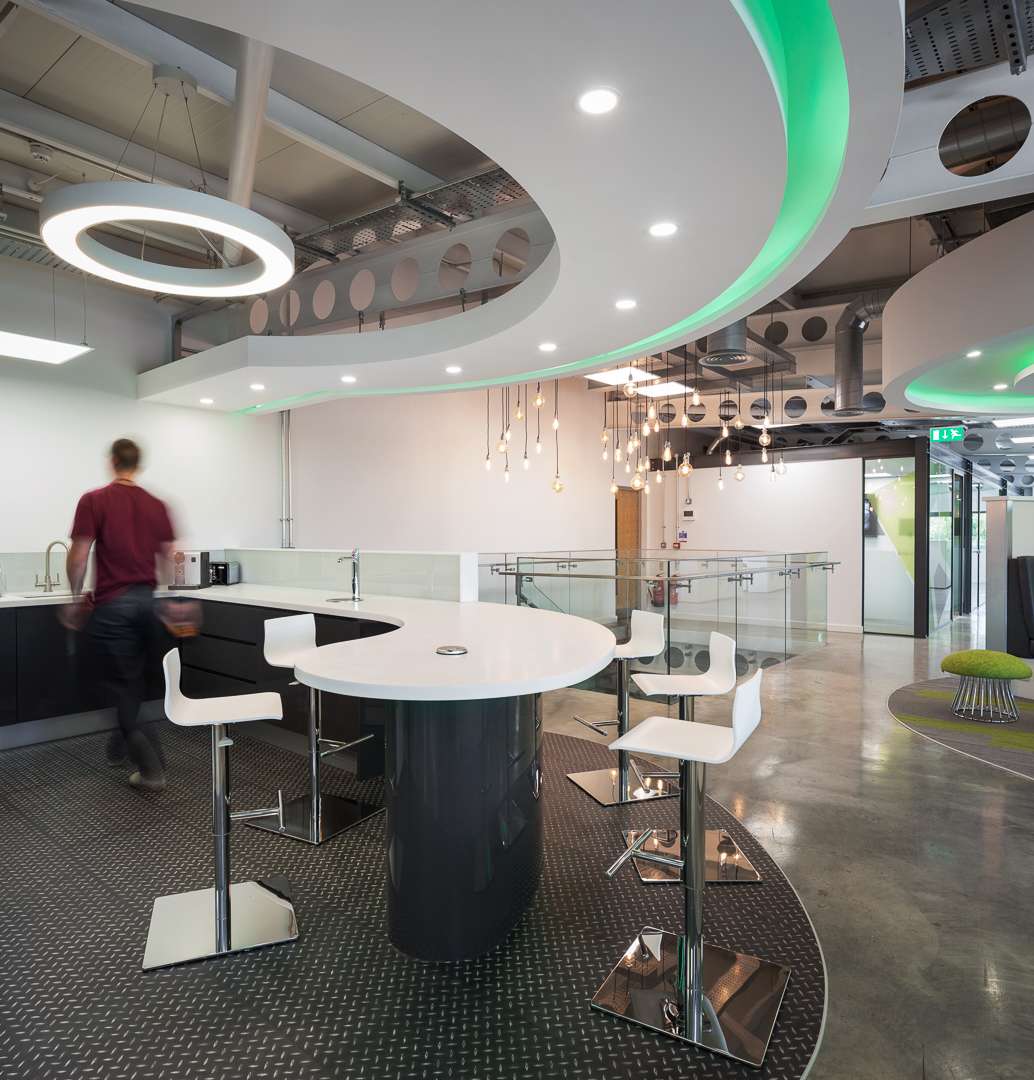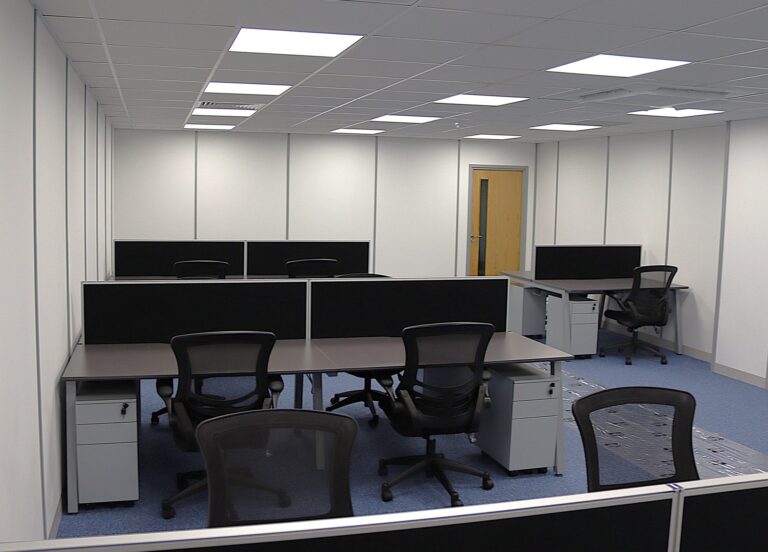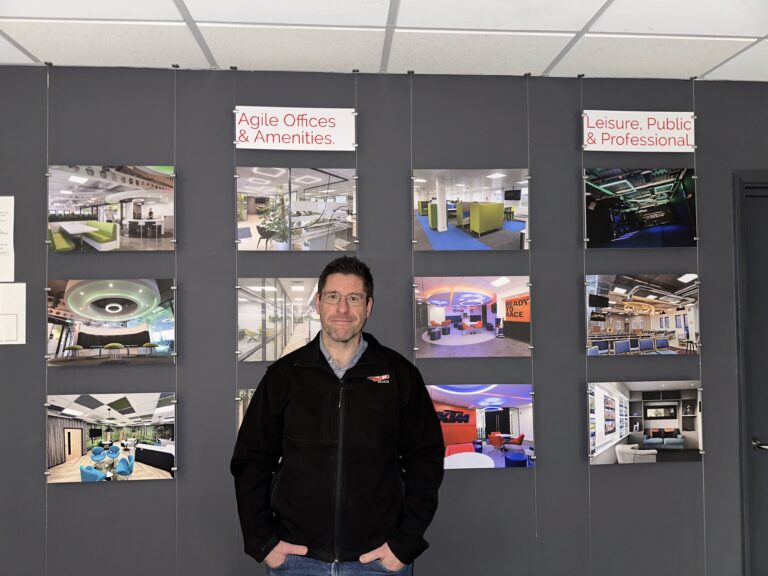Designing Offices that foster Collaboration and support Agile working
Introduction
With greater freedom offered by modern technology and a paradigm shift from the archetypal office layout; companies are re-evaluating how well their current Offices are functioning. An increased awareness of modern Agile working is influencing the way we design our office spaces, allowing staff to adapt their environment to suit the task at hand, rather than being stifled by their workplace.
As younger generations enter the workplace, fresh from Universities that have heavily invested in their real estate, the expectation and demand for these type of offices will only increase. The design team at DSP (interiors) Ltd are well versed in these emerging trends and are incorporating spaces that foster collaboration and support agile working.
Amenity Areas
Amenity areas have become vital in providing support to the main function of workspaces. Not only do they allow staff to relax and rejuvenate , which enhances productivity; they also create a healthy working environment, enhancing staff well-being.
These relaxation areas have become the ideal opportunity to incorporate stand out features, focal points and branding. This engages staff, allowing them to be proud of the business they work for, as they focus on doing their job to the best of their ability. In addition, these breakout spaces then develop into informal meeting and team collaboration zones, due to their informal and fluid nature.
Incorporating agile working
Agile working environments are perfect ways to create flexible and fluid work spaces, enabling staff to work the way they want, increasing productivity and spurring intuitiveness. Emphasizing quality and performance of work, rather than where it is completed, they provide multi-functional spaces. This encourages collaboration and interaction, increasing overall ‘wellness’ in the workplace. Adaptive environments are key to a creative and inspired atmosphere within the workplace. Varieties of colours, textures and interchangeable lighting all contribute to a balanced ambiance.
Many businesses have found that by choosing this more flexible, dynamic working approach, their staff are encouraged to work more closely, improving cross-collaboration and increasing efficiency. Therefore, workers feel more inspired to utilize time and resources. This is evident in the 70% of workers who view a job with flexible working options, more appealing than a traditional working environment- being glued to an office desk all day obviously is losing its appeal, particularly in younger generations.
It’s no secret that flexible working environments are becoming increasingly more popular. As this demand continues to grow, businesses are developing their work spaces to become focused around innovation and collaboration; allowing workers to bounce ideas and develop a culture of team work.
Technology; Smarter ways of working
Enabled by advancements in technology “Smart working” affords new possibilities in the workplace. We only have to look at how much influence the advent of the ‘smart phone’ and other ‘smart’ technologies have changed society, in and out of the workplace. indeed, the line between work and home life are rapidly merging. This is evident with recent calls for the commute to work, where staff often catch up on emails and other correspondence to be included in the hours of the working day.
Smart working improves both the final outcome and the entire process itself. This improves productivity with employees valuing their work more due to increased freedom, choosing the most effective methodology and tools for the job. ‘Smarter’ offices go hand in hand with agile working which is in turn changing the landscape of the Offices we work in.

